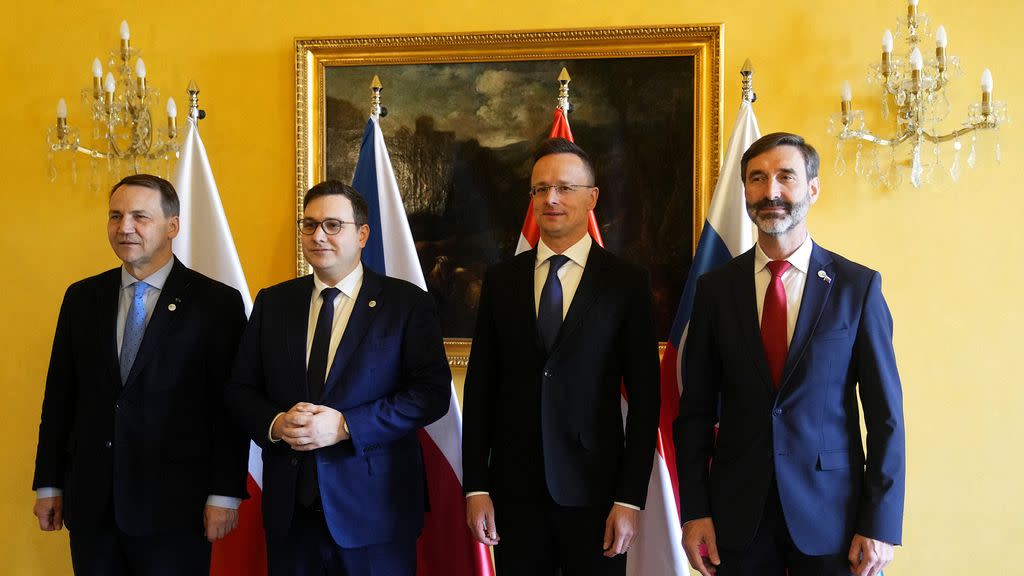Visegrád Group still deeply divided on sending arms to Ukraine

Four Central European countries - Czech Republic, Poland, Hungary and Slovakia - known as the Visegrád Group, remain deeply divided over how to resolve Russia's war against Ukraine, their foreign ministers said on Thursday.
The countries' foreign ministers discussed a Czech plan to acquire ammunition that Ukraine needs from third countries outside the European Union, at a meeting held on Thursday.
“It’s necessary to boost support for Ukraine in all areas including military assistance,” Czech Foreign Minister Jan Lipavsky said.
Under the plan, the Czechs seek to obtain 800,000 artillery shells for the war-torn country. Czech leaders previously said the first shells should be delivered to Ukraine no later than June.
At least 18 countries have joined the initiative, Czech leaders have previously said.
Polish Foreign Minister Radek Sikorski called the Czech plan an “excellent idea”.
“We’re very happy to contribute,” he said. Sikorski added Poland would contribute funds as well as help deliver the ammunition to the front.
But the foreign ministers of Hungary and Slovakia are not ready to change their strict refusal to provide arms to Ukraine.
“Hungary has not and will not send any weapons to Ukraine,” Hungarian Foreign Minister Peter Szijjarto said.
Slovakia’s view has not changed because “the conflict doesn’t have a military solution,” according to its foreign minister, Juraj Blanar.

